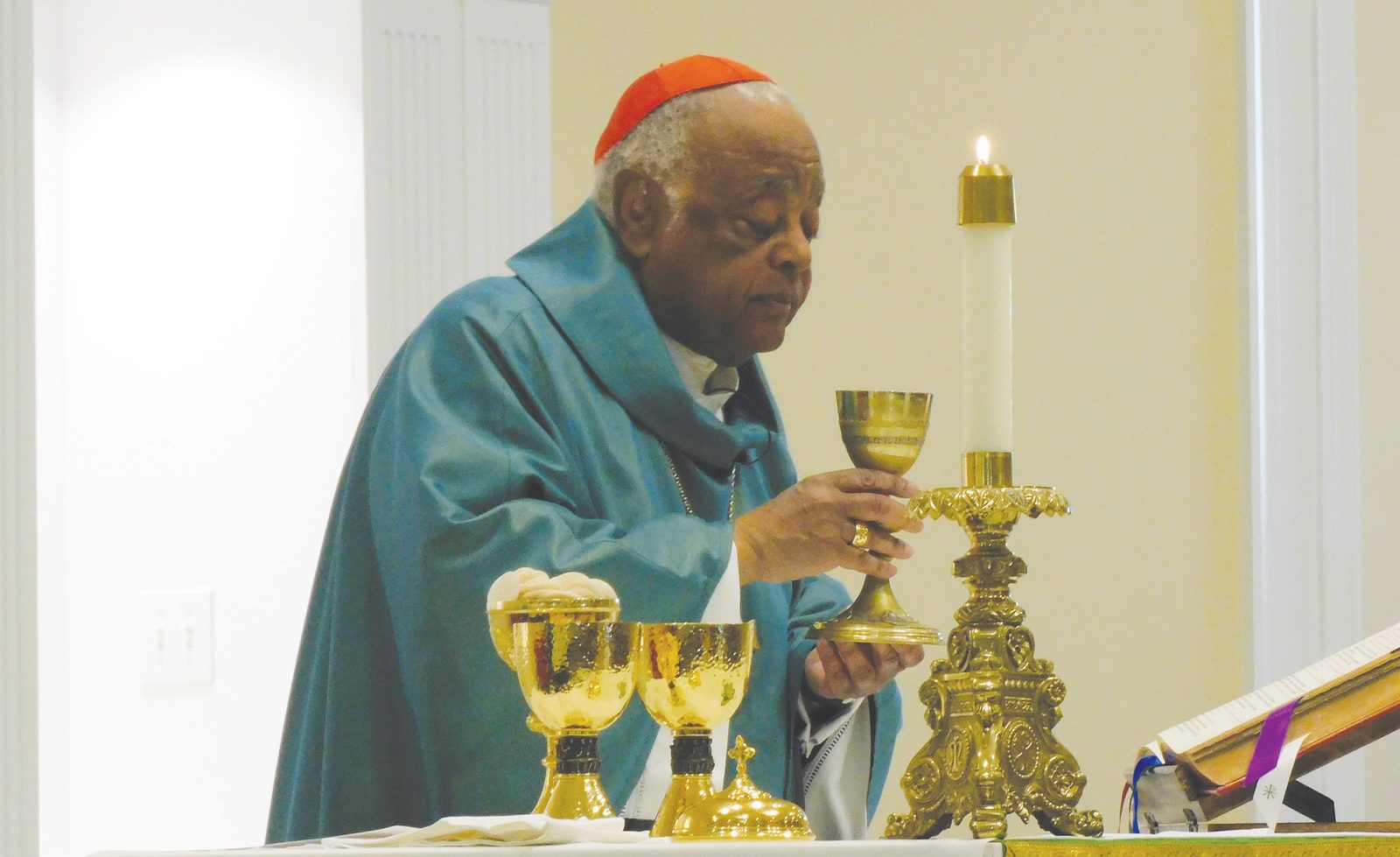Cardinal Wilton Gregory joined students at the University of Maryland’s Catholic Student Center in College Park, Maryland on Sept. 8 for a morning Mass, recounting for them Jesus’s healing abilities as told in the Gospels, and reminding them that the Lord continues to heal us from sin.
“The faith lessons in these stories are not about past diseases, but about the diseases that you and I still endure even as we listen to the Gospels,” Cardinal Gregory noted. “The Gospels are not merely stories about other peoples’ illnesses – above all, the Gospels are accounts of Jesus’s ability and desire to heal all of us from every sickness.”
The Mass’s Gospel passage of Mark 7:31-37 highlighted Jesus performing a miracle by healing a deaf and mute man brought forth by his neighbors. In his homily, Cardinal Gregory mentioned modern medical achievements, such as the Americans With Disabilities Act, which makes our society more accessible for those with disabilities.
“If you look about you, today, you will notice all types of simple accommodations that make it easier for persons with disabilities to share in the life of our community,” he said. “Occasionally, it takes our society and too many individuals some time to realize what later seems to have been an obvious need.”
Turning back to the Gospel, Cardinal Gregory remarked that most people who brought the deaf and mute man probably viewed him as nothing more than an inconvenience. “Jesus saw not a problem, but a brother – and even more importantly, Jesus saw a possibility… The Messiah comes not simply to work miraculous cures for those with obvious maladies. He comes to heal those whose brokenness is not nearly so obvious, especially to them.”

The cardinal asked the students, “What is worse, the inability of our ears to hear and understand sound, or the deafness of the human spirit to appreciate the needs of our sisters and brothers?”
Cardinal Gregory said how becoming self-aware of his own good health made him recognize insensitivity towards those who are disabled.
“That awareness made me realize that I, myself, had a disability – it’s called callousness,” he said. “As we listen to the Gospel passage today or other stories of Jesus’s miraculous cures, let us open our hearts to see that we all have tongues that need healing.”
Ben Maranto, a University of Maryland senior, was one of Cardinal Gregory’s altar servers during the Mass. He reflected on how his faith has helped him: “My faith helps me realize the absolute dignity of every human person. While it may be difficult at times when faced with adversity, my faith allows me to be reminded of just how precious human life is.”
Sophomore Luz Gaytan described how the Catholic Student Center aids her and her faith journey, especially through the Sacrament of Reconciliation.
“Confession makes me a lot more conscious about what sin is,” she said. “It keeps me grounded in terms of what I know I can and can’t do. I’m appreciative of it because it helps me stay on a straight path.”
Students can confess 30 minutes before every Mass. Gaytan noted that living on campus is somewhat of the “devil’s playground,” meaning that there’s always something going on that can lead a lukewarm person astray.
“Jesus isn’t a Band-Aid; He is the cure,” she said. “The farther we are from Him, the more sick we become. If we don’t want to be ill, we must be healed with Christ.”
(Elizabeth Polo is a journalism student at the University of Maryland and is a contributing writer to the Catholic Standard.)










